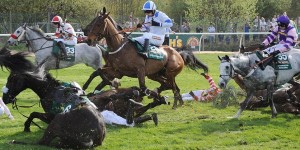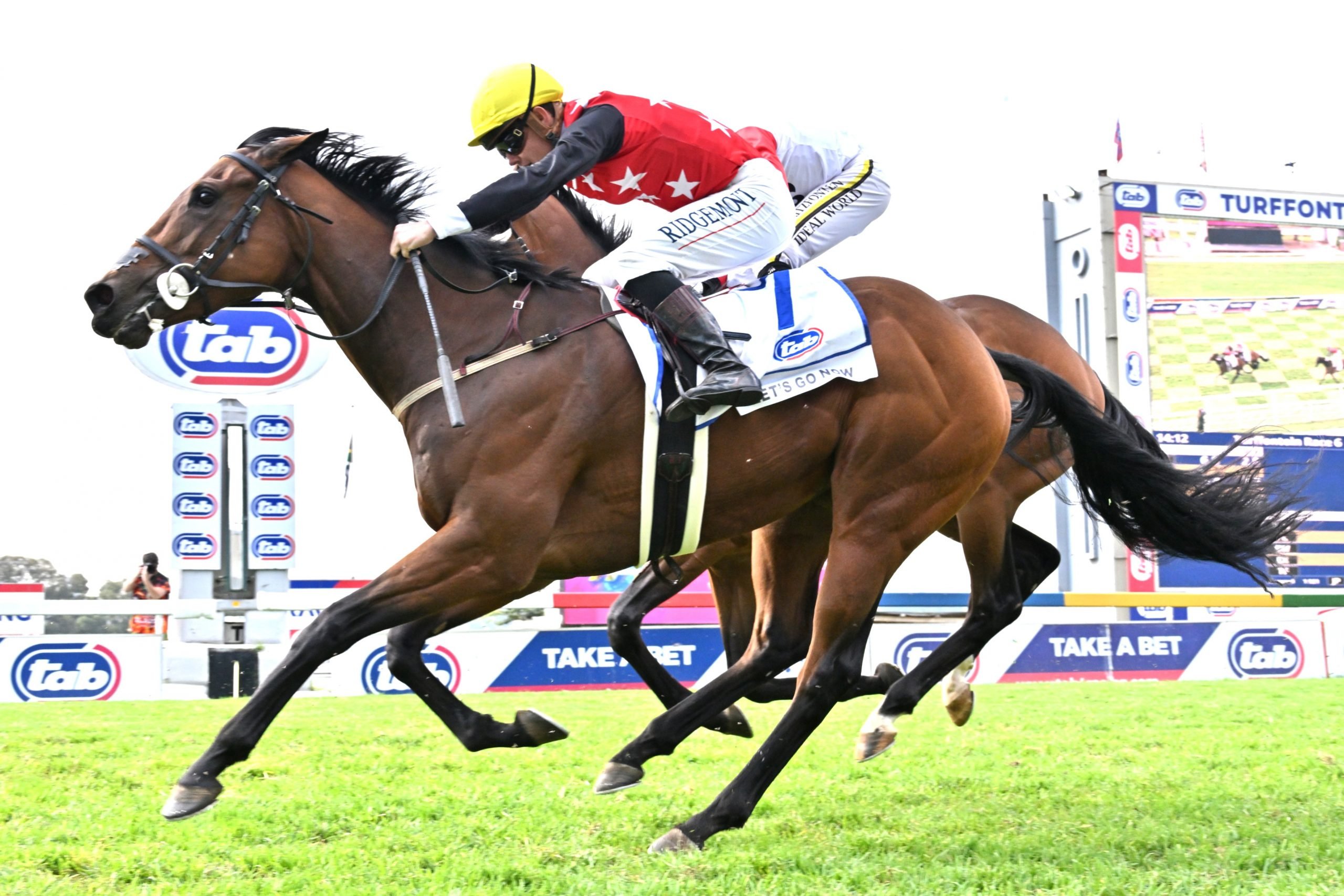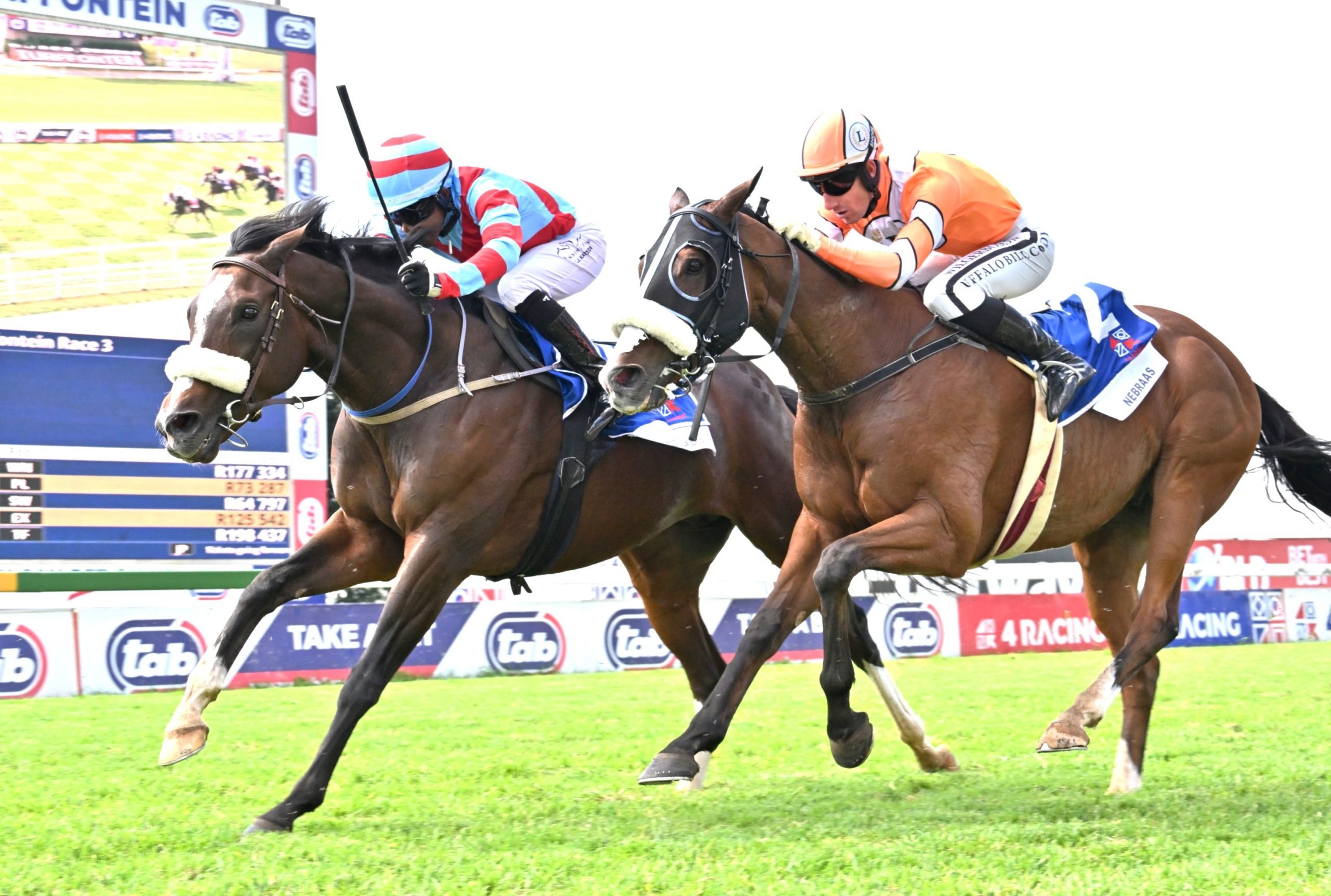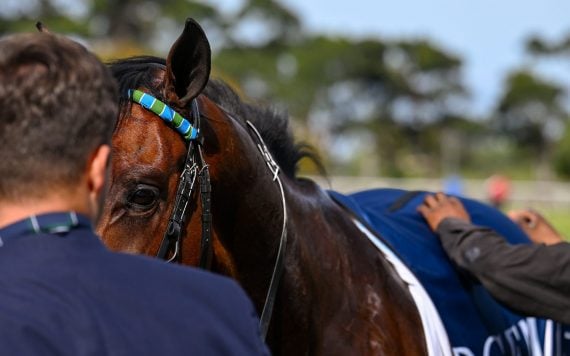The Grand National…… It’s been looming for some time. It is quite impossible to ignore because the Brits do an exemplary job of marketing and promoting it (who in the world does not know Red Rum?). It is the one race of the year that almost everyone has a flutter on – even if it’s only an office sweepstake.
It creates a lot of debate, particularly after another ‘bad’ run where 2 horses have been lost and I often get asked how I feel about it. I’ve been giving it a lot of thought over the years and of course, particularly this weekend. It is not an easy question to answer.
A bit of background
The course itself has a long and interesting history. The first official races at Aintree were organised by a syndicate, headed by the owner of Liverpool’s Waterloo Hotel, Mr William Lynn. Leasing the land from Lord Sefton, he set out a course and built a grandstand. Lord Molyneux laid the foundation stone on February 7, 1829 and placed a bottle full of sovereigns in the footings.

Fun? A self-explanatory scene
The course staged its initial jump fixture in 1835 and the Grand National has been a British sporting institution since the first running back on Tuesday, 26 February 1839. In those days the race was known as the Grand Liverpool Steeplechase and horses were required to jump a stone wall, cross a stretch of ploughed land and finish over two hurdles.
The first running of the race was won by a horse called Lottery. When Captain Martin Becher parted company with his horse, Conrad at the now famous brook, he reflected that “Water tastes disgusting without the benefits of whisky”. The infamous obstacle has borne his name ever since.
A few other interesting facts are that Bruce Hobbs, aged 17, was the youngest winning jockey in 1938, on Battleship – the smallest horse ever to win. Dick Saunders, aged 48, was the oldest successful rider on Grittar in 1982, his first and only Grand National ride. He announced his retirement immediately afterwards. The race has nearly been lost to history several times over, it has been postponed by an IRA bomb scare and has enjoyed a number of sponsors including Ladbrokes, Seagrams, Martell and currently John Smith’s.
The Grand National actually forms part of a 3-day Festival, culminating with the world’s greatest steeplechase on the last day of the festival. It is run over four and a half miles over a course of 30 obstacles for a maximum field of 40 starters which has had it dubbed ‘a cavalry charge’. 2012 was the 165th annual renewal of the showpiece steeplechase for a record purse of £975,000, making it the highest-valued National Hunt race in the United Kingdom. It was one of the closest finishes in the history of the race. It is only the third time it has been won by a grey and is the first time it’s happened since 1961. Also, in another entry for the history books, Katie Walsh (sister to Ruby Walsh) attempted her first National this year and scored the best result ever for a female jockey when she finished 3rd on Seabass.
So how do I feel about it ?
The first reaction of course is to condemn it out of hand. The mortality rate is just horrible and it is hard to stomach from that point of view alone. However, if I try to be a little more objective, one has to accept that we breed horses to race / ride / etc and if it weren’t for the fact that they had a use / some sort of end goal in mind, then it is quite possible that they probably wouldn’t exist in the first place. Which may not be very nice, but it does remain an uncomfortable fact.
Pretty much everything we ask horses to do could be considered contrary to their nature, so perhaps it’s a question of degrees and I guess we all draw our lines in different places. Would I run a horse in the National? With my current horses, no. However, if I owned the pink slips to Red Rum, I might feel slightly differently…..
Danger Danger
Everyone who is involved with horses knows and accepts that it is a dangerous occupation. You will regularly find yourself in potentially deadly situations. Fact. And it is very likely that you are going to get hurt at some point. But while danger is a part of it, it is certainly not the point of it. Sky divers have defended their pastime less as death-defying as life-affirming. Apparently the sights, sounds and smells of life are a lot more vivid that close to the edge. I think life with horses is much the same.
If you consider that 3 horses died during a single (flat) race during the recent Dubai World Cup and that the American stats for catastrophic injuries on their race tracks stands at somewhere around 6 out of every 1,000 runners, it is still not nice, but it does start to gain a little more perspective. Despite the current furore, BHA chief executive Paul Bittar reports: “The evidence indicates that the changes and improvements in safety made over the years have led to an overall decrease in injury and fatalities, both on the Grand National course and racing in general. The decade since 2000 was the safest on record for the Grand National with a fatality rate of 1.5% compared to 3.3% at the start of the 1990s. Naturally our objective is for there to be no fatalities, but we also recognise that we cannot remove risk altogether from such a competitive activity.”
But the question is, should we?
Call for Change
There is a lot of call to make it safer, to change the jumps, etc, but to be honest, I think it would lose a lot of its appeal if it did. In his piece ‘You can’t rationalise the Grand National’ Stephen Moss writes in the Guardian “The Grand National is so named because it is a race for 40 horses over four and a half miles, in which they tackle 30 difficult obstacles. Shorten the race, change the obstacles or reduce the field, and it becomes a different race, in effect another very interesting staying handicap chase – but not the Grand National’.
The Grand National is to jump racing what the top echelon is in any sport. It is reserved for only the very best, the fittest, the bravest, the most skilled. It’s not supposed to be easy. And I guess, therein lies the appeal.
Despite two desperately tragic races in 2011 and 2012, Ladbrokes’ David Williams reports that “Amidst all of the soul-searching which quite rightly is going to take place, it is worth remembering that there was record turnover on the race, so the sport must be doing something right”. The BBC also reported that viewing figures were up on last year and the race is estimated to have reached a worldwide television audience of 600 million people.
The Grand National is one of horse racing’s single biggest ‘shop windows’ and our best opportunity to sell our sport to the layman. There is (rightly) a lot of ill feeling and opinion that it is appalling that the only horse race most people will watch, will be the National and that they will therefore be subjected to watching horses die. But if the improved turnover and viewing figures are anything to go by, it would seem that there really is no such thing as bad publicity.
The detractors will argue that it is cruel and that jump people don’t care about their horses, but I think that’s a pretty difficult thing to say. It would be impossible to put in the amount of work and risk what they do with their horses and not feel any connection. No-one deliberately sends out a horse to its death. No one wants to come home with an empty horse box and an empty bridle. I know I certainly want to vomit every time one of my horses heads down to the start of a flat race and that’s considered relatively safe!
Tony McCoy is still too upset about the loss of Gold Cup winner Synchronised to talk about it. According to Pete (who fell and broke his shoulder at Becher’s Brook) was owned and bred by Peter Nelson, the motor mechanic and paper delivery man from North Yorkshire. He had owned the horse for 10 years. Tina Pearson, According to Pete’s lass, is devastated. But despite the loss, trainer Malcolm Jefferson has spoken in defence of the John Smith’s Grand National and feels they should stop tinkering with the conditions of the race. “As a trainer, and it’s the same for anyone in racing, you don’t go to the races expecting to lose your horse. You can’t do anything about it, it’s just a freak accident that could have happened anywhere but because it was the National everyone saw it. There was a lot of carry on after last year’s race, and I just wish they’d stop trying to please everyone because you can’t. ”
The craziest and perhaps the most fascinating story of the day for me, is the owner of winner Neptune Collonges, John Hales. He said simply “Aintree owed me one.” And it certainly did. In 1998, Hales’ horse One Man came to Liverpool off the back of his most famous victory in the two-mile Queen Mother Champion Chase at Cheltenham. He had won 20 of his 34 starts, but he took a crashing fall in the Aintree back straight and paid the ultimate price. For someone to lose a horse to the National, and then come back and have another go, must take some guts and determination. So the weekend’s short head victory must have been particularly meaningful. However, Mr Hales is keen not to push his luck and announced Neptune Collonges’ immediate retirement from racing.
The Risks
Even though the fences have been extensively reviewed and adjusted, it takes an exceptional horse (and rider) to look at those and think ‘I can do that’. And a lot of horses do finish. Some even run (and win) the race more than once, so it is certainly do-able. For some, anyway.
The ugly fact is that some don’t come home. Someone commented that the horses are probably running so high on adrenalin that the shock and energy would probably keep them from feeling too much pain. And there is mercifully a vet on standby to end their suffering quickly. I know that for any other ‘normal’ emergency, it can take up to an hour to get a vet out, and I guess one could argue that that is pretty cruel too.
David Thomas writes for the Mail Online – ‘One of the paradoxes of the interaction between man and nature is that many species thrive precisely because we like to do things with them and to them that some consider cruel. There are, for example, no mammalian species on earth as numerically successful as the cows, sheep and pigs we like to eat and skin. Likewise, game birds flourish while songbirds decline because people spend large amounts of money to rear pheasants, grouse and the like, purely so that they can then shoot them.
For some reason, competitive people seem to want to know what their (and their horses’) limitations are. If you have a good horse, the temptation is always to try and find out how good. If you have a decent jumper, you take it to A-Grade. Then International. And as far as you can possibly get it. Racing is similar. Once a horse has proved itself, we gradually increase the level of difficulty. But we hope that the horse will have the ‘quality’, the ‘courage’, the ‘heart’, to triumph regardless, because then we know beyond doubt that have the very best. So I get the people who defend the status quo too.
The other side of the Argument
Stephen Moss at the Guardian says ‘The Grand National is irrational, unpredictable, emotional, vivid, dangerous. It probably should not exist, yet it has enriched our imaginations. The former jockey Brough Scott, in his fine piece in the Sunday Times on the questions posed by the twin deaths, quoted Blake: “Great things are done when men and mountains meet.”
Another poster was moved to contribute – ‘Courage is a very important quality, we’ll regret it in the long run if we do not develop, test and celebrate it; and there’s no way to test it without risk. The Grand National is one of the very few tests of courage left; we have too few as it is.
It remains a crazy race though. Its history is as filled with heroes as it is with heartbreak. And while I like the fact that it exists, the history, all the rousing sentiments and ‘against all the odds’ stories, I’m not sure that I can fully support it. So how do I feel about it ? The honest answer is ‘I don’t know’. But the fact that I lived in the UK for 12 years and never watched it probably says it all.








